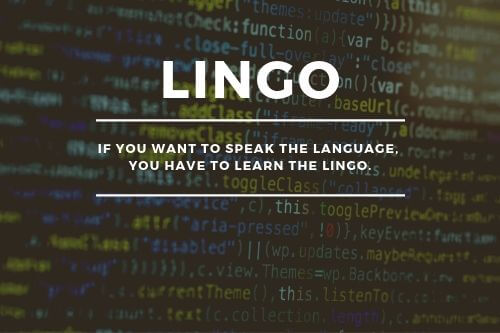
YouTube / iTunes / Spotify / Radio Public / Pocket Casts / Google Podcasts / Breaker / Overcast
Listen to ArtisanEnglish.jp posts & lesson intros here.
Word of the Day: Lingo
Yes, it’s true.
If you want to learn the language, you must speak the lingo.
The problem is, what on earth does that mean?
Well, lingo is a foreign language and could also be jargon, such as technical or field-specific vocabulary.
It can also be a little more than that, though.
For example, I’m Canadian, and if you want to go to Canada and fit in, it’s crucial that you learn not only English (or French) but also Canadian lingo.
If you’re going out to buy a large double-double at Timmies in December, remember to wear your toque and have a few loonies and twoonies in your pocket as well.
Perhaps, later on that evening, you’ve been invited over to a friend’s house to watch a game on TV.
If you’re in Canada, you shouldn’t have to ask what kind of game.
Anyways, please bring over a two-four with you to share with everyone.
It’s a great way to make a few new buddies.
See, that’s Canadian lingo.
A double-double is a coffee with two creams and two sugars.
Timmies is a coffee store, but not just any coffee store – it’s ours.
A toque is a knitted winter hat, and a two-four is a case of 24 cans or bottles of beer.
Oh yeah, and the game on TV is always ice hockey, except, of course, when the Raptors are showing the Americans how to play basketball.
So, you may be a language student learning English, but when you finally leave Japan and go overseas, you can’t communicate clearly until you understand the local lingo.
When you learn the lingo, you’ll know some bizarre things.
I, for example, spent quite a while in New Zealand and discovered they couldn’t count past the number five without saying ‘sex.’
It’s all part of the lingo.
Flesch-Kincaid Readability Test
This post is understandable by someone with at least a 7th-grade education (age 12).
On the Flesch-Kincaid reading-ease test, this post scores 74.
The easier a passage is to read, the higher the score on a scale of 0 – 100.

